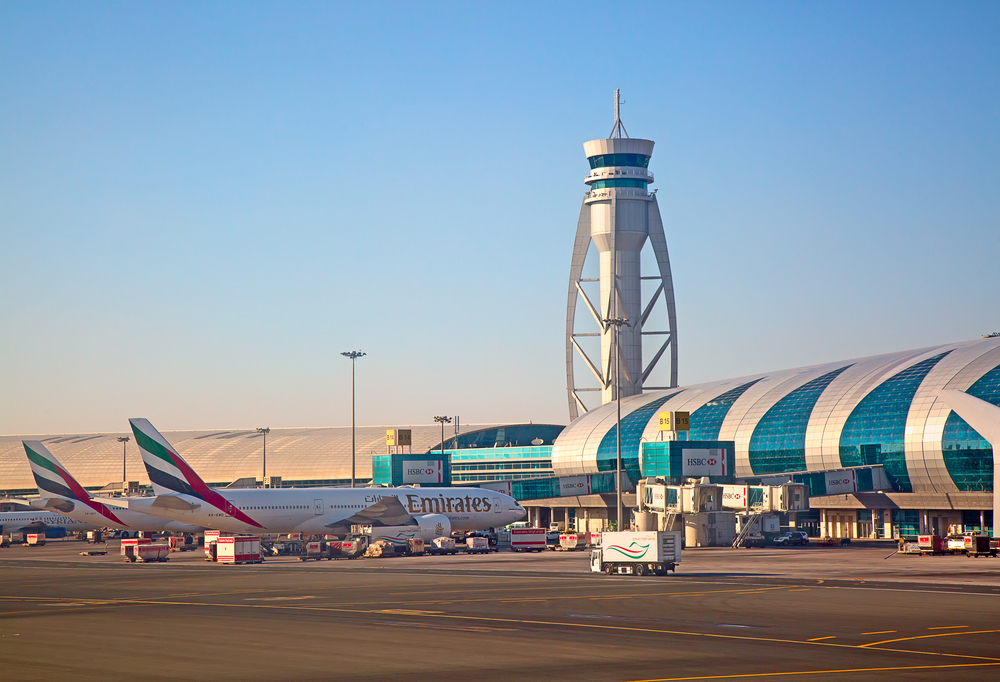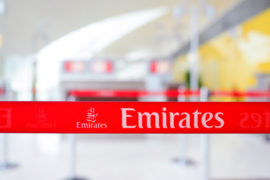One of the busiest air transport hubs in the world, Dubai International Airport, made the decision to suspend all passenger flights for at least two weeks yesterday in a bid to halt the spread of the coronavirus in the United Arab Emirates and as flight demand waned.
The only flights that will continue to operate out of the airport for the next two weeks will be freight and emergency evacuations, according to a statement from the airport, with a similar announcement also being made by the airport in Abu Dhabi.
All transit and passenger flights had initially been banned by the UAE for just 48 hours, but 50 new cases of the virus were diagnosed in the nation by Tuesday morning, the total reaching 248 and then 333 by Thursday.
According to Waddah Taha from the National Advisory Council of the UAE’s British Securities and Investment Institute, 90% of all flights had already ceased by yesterday, resulting in 230 planes being grounded.
In the UAE and elsewhere, the volume of development has massively decreased, Taha noted in a statement to The Media Line.
The coronavirus pandemic has hit the international tourism and travel industries hard, with tourism providing much of the revenue for the international shopping destination that is Dubai.
Countries that are dependent on tourism are suffering significant financial damage because of the virus, with Dubai one of many places suffering deterioration due to the crisis, Taha says.
A number of airlines could end up bankrupt in just two months if the current circumstances continue and no financial support is offered to them, with some already laying off the great majority of their employees and ending services, Taha notes.
Emirates, the state-owned carrier that is the fourth biggest in the world in terms of scheduled passenger flights, has cut many salaries by 25% to 50%.
The slowdown in demand for travel had already led the airline to ask many members of staff to go on leave by 2nd March.
Taha says that government support is vital and that while Dubai has other capabilities, many poorer developing nations are going to have to ask for help from international institutions such as the World Bank.
Abu Dhabi Capital’s chief strategy officer Mohammed Yasin says that for airports to be shut down, the cost of keeping them open during the pandemic must have been simply uneconomical.
Yasin says that it must have been a difficult choice for both Dubai International Airport and Abu Dhabi Airport, though possibly even more so for the former given that the emirate is already an established travel hub used by India and China as a stopover for Europe.
The stoppage is bad news for all those who work at the airlines, the airports and in supply chains such as food, hotels, power and catering.
Anyone who travels to and from the UAE when the crisis has passed will need to take out travel insurance against the costs of cancelled flights or overseas illnesses.




